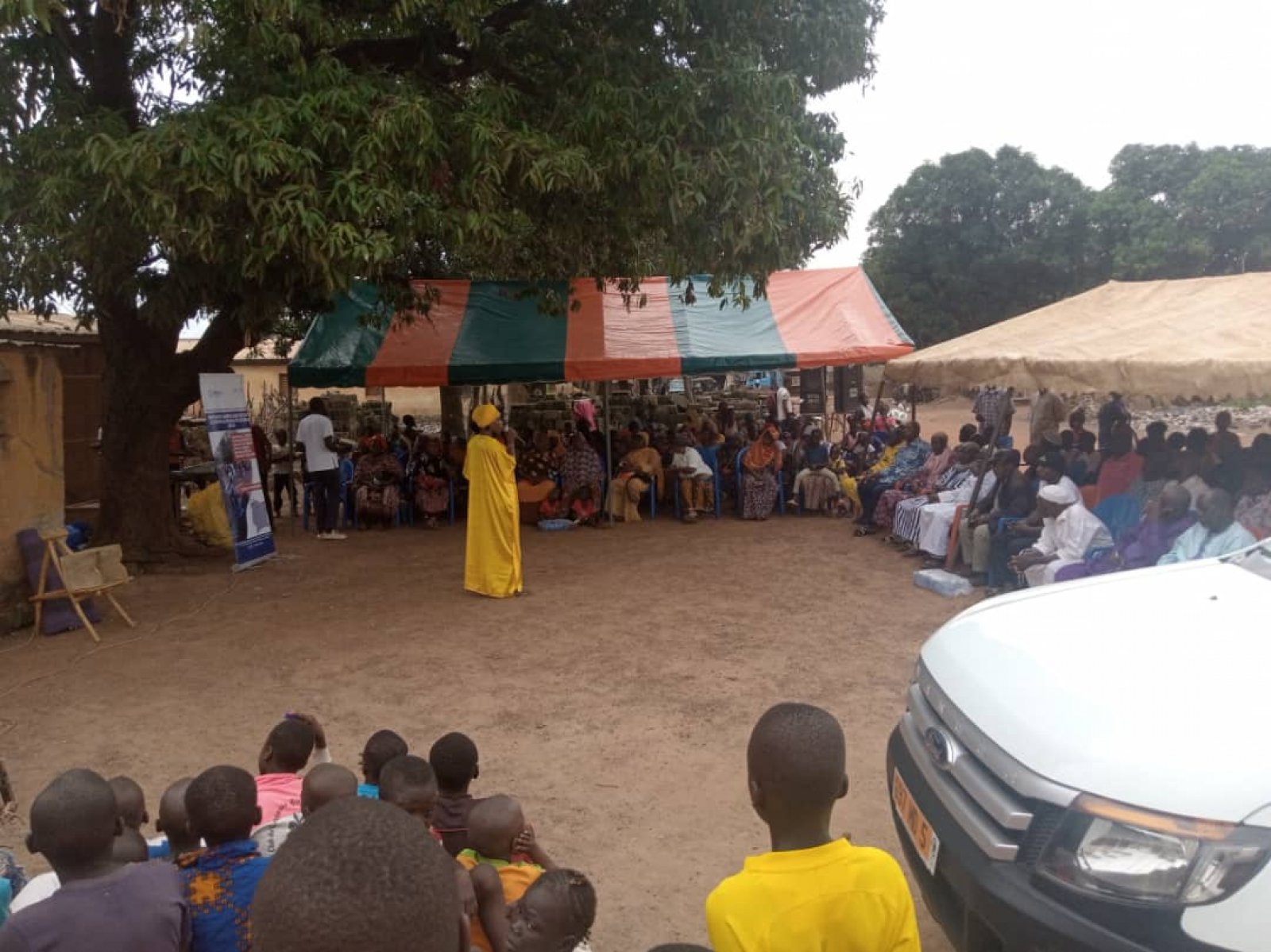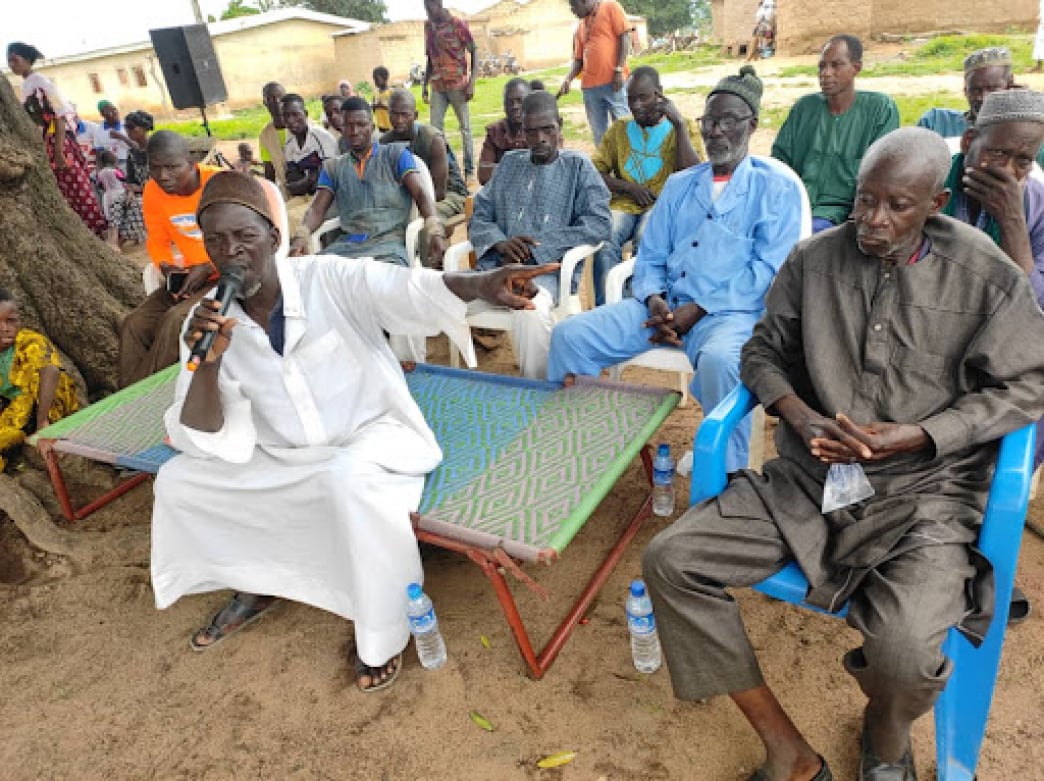
Members of the theater troupe perform in Tengrela on August 17
SHARE
On a dirt stage packed on all sides by a rapt audience, a young man with prematurely grayed hair howls in outrage at his radio. Acting the part of an inept village chief, he rails at the radio, his wife, and a passing neighbor about a local government decision that he sees as interference in his town’s land disputes.
In the next scenes, it becomes clear that local land management would benefit from some kind of intervention, as the fictional community suffers from many problems that resonate with Ivoirians across the country. One foreign-born resident confronts his neighbor about cashew planting on the first man’s land, and the neighbor responds by questioning the foreigner’s land rights in the community. Two men from different families argue over who owns a plot of land; one says he bought it long ago, and the other says it belongs to his family and he inherited it, but neither has papers. The chief’s niece unsuccessfully tries to calm the actors as they come to the chief seeking redress, suggesting that a village land committee could help resolve the issues. However, as tensions rise, so does the threat of violence, and the chief flees the scene.
At this moment, a member of the theater troupe jumps on stage and invites the audience to observe how things had gone so wrong and suggest ways that the characters in the story could have acted differently to come to a better outcome. Some audience members were invited to the stage to act as the chief or other characters, spinning new improvised scenes of solutions before the scene turned violent.
With funding from the United States Agency for International Development (USAID), the National Democratic Institute (NDI) is teaming up with local theater troupes to organize participatory theater performances like this one that educate local communities about the importance of resolving underlying issues (especially in a way that includes women and youth as peacemakers) to create strong communal bonds in order to promote local peace and security.
Resolving these types of conflicts that are at the root of interethnic tensions is of particular importance in this part of northern Côte d’Ivoire, as developments in the neighboring Sahel have made this region increasingly vulnerable to external security threats. After viewing the performance and watching his peers make their suggestions, one audience member noted, “I ask everyone to strengthen inter-community collaboration so as not to give frustrated people an opportunity to join the extremists.”
unnamed.jpg

This latest scenario on land conflict has averaged around 350 audience members per show. At the end of the performances, the participants expressed appreciation for the show and shared the practical lessons they learned to solve potentially violent land disputes in their own communities. In Tengrela, a participant said, “Everyone should have documents proving that they own land; this will make things easier and avoid this type of conflict.” Another participant in Ouangolodougou suggested creating a village committee to manage future land conflicts. In M’Bengue, someone added, “Whether you’re a non-native or a native, everyone is equal. [The chief] should give the land to the first applicant to whom it was ceded.” NDI, local youth, and other community leaders use recommendations from these events to inform advocacy to local and national administrative and security sector leaders.
While these are tricky solutions that require long-term efforts, these performances aim to help community members better understand all of the sides and perspectives of the issue and choose to resolve their problems in peaceful ways in the future.
Author: Jonah Brody, Program Associate on the Central and West Africa team
Related Stories
Reconciliation and Peacebuilding in Côte d'Ivoire
Youth in Koumassi Resolve Conflict Peacefully
###
NDI is a non-profit, non-partisan, non-governmental organization that works in partnership around the world to strengthen and safeguard democratic institutions, processes, norms and values to secure a better quality of life for all. NDI envisions a world where democracy and freedom prevail, with dignity for all.


